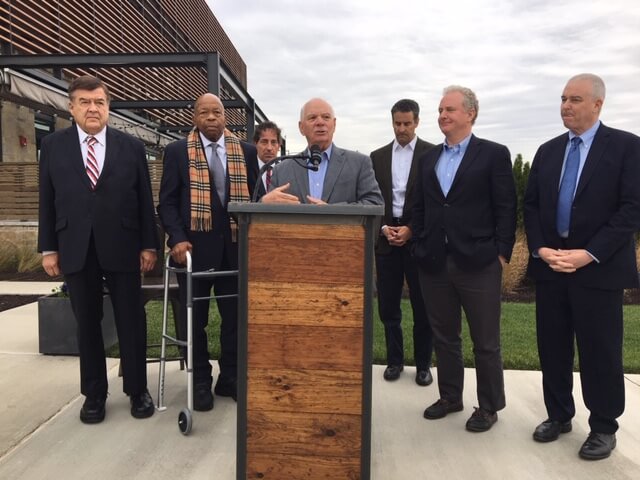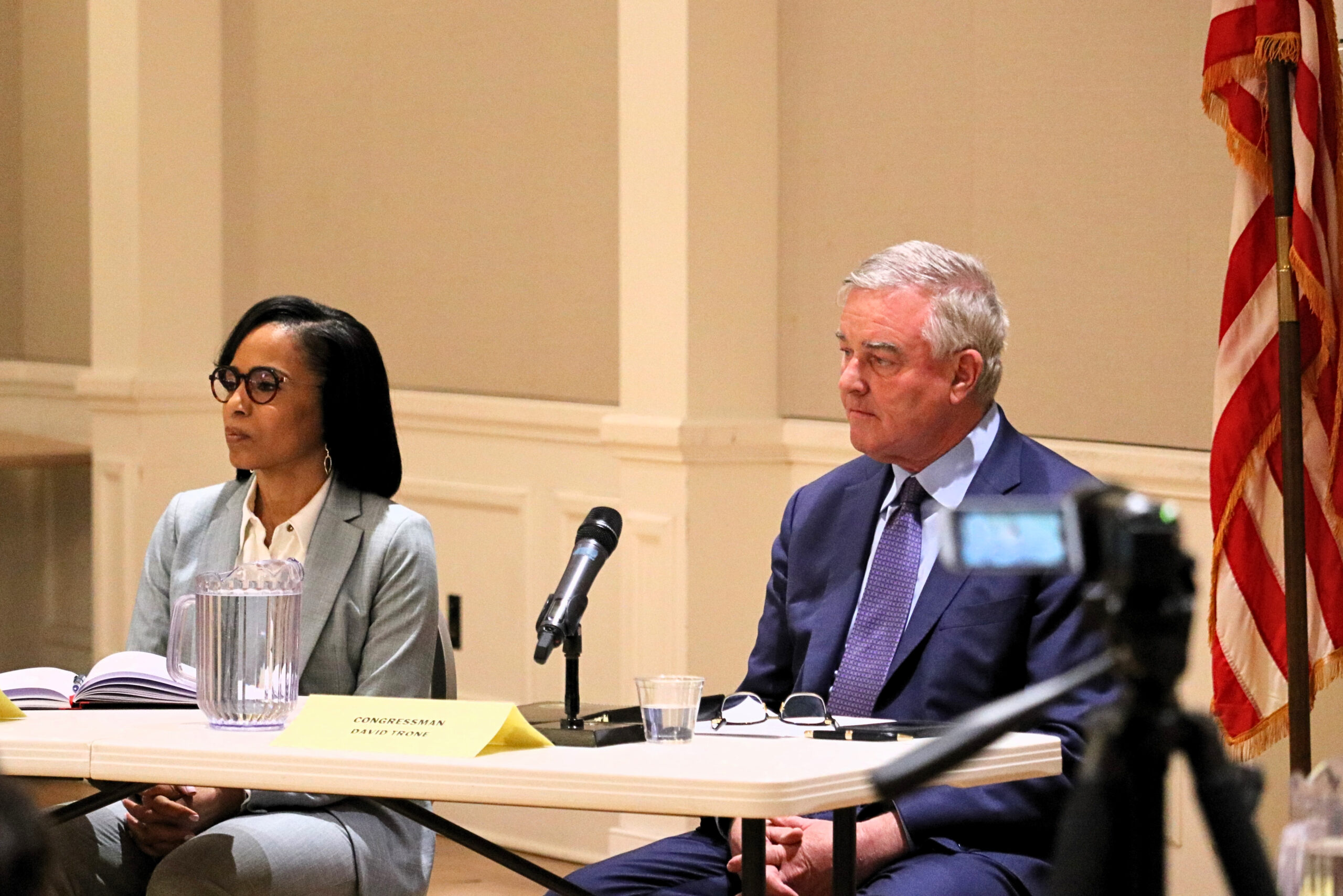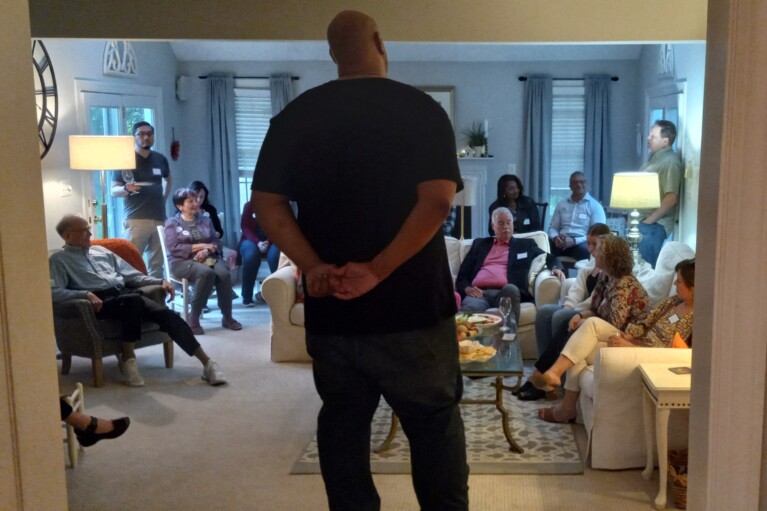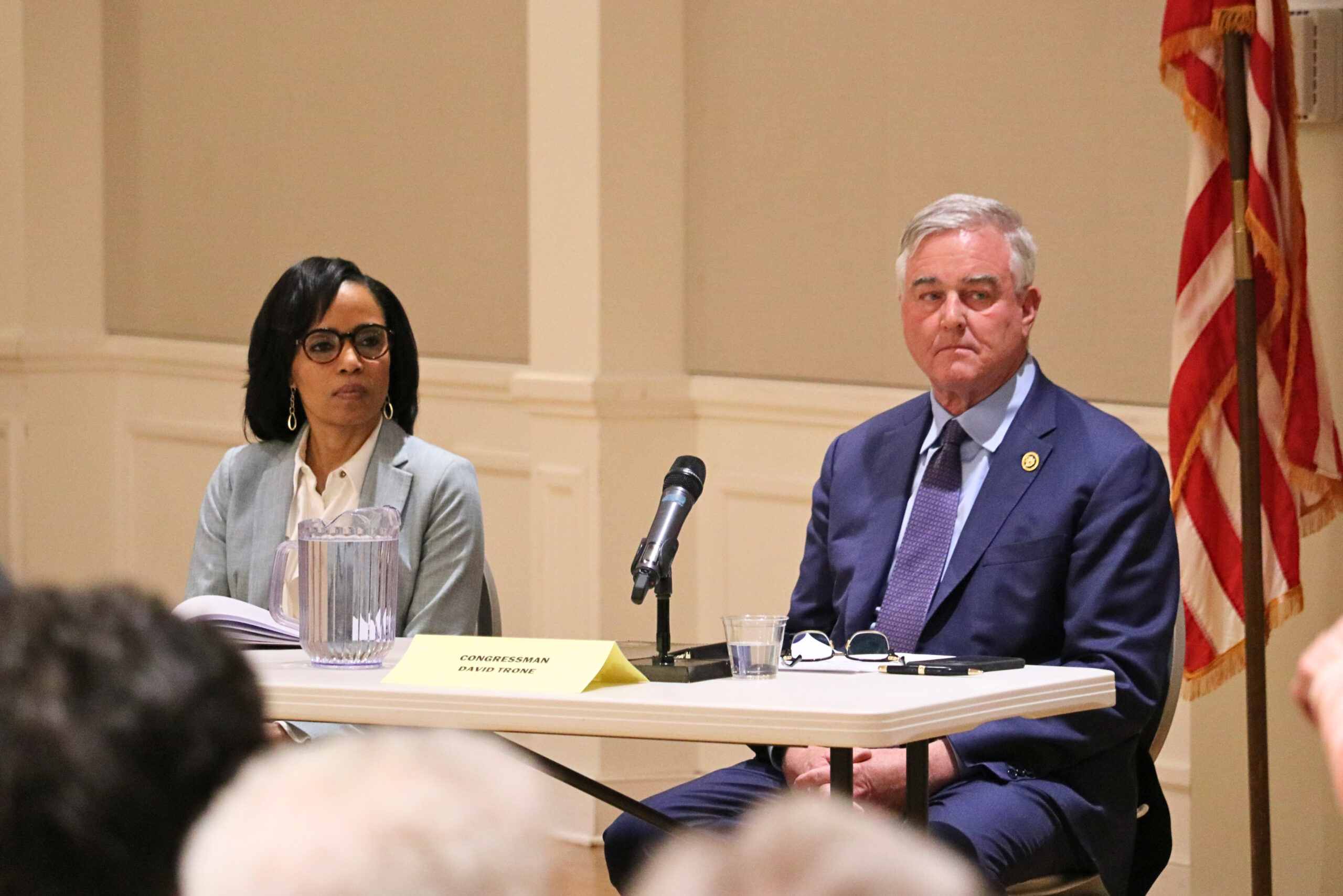Like White House Hopefuls, Md. Dems Split on ‘Medicare for All’

The heated health care debate that’s dividing Democrats at the national level is splitting them up in Maryland, too.
Four of the state’s eight members of the U.S. House are co-sponsoring legislation that would replace private health care companies with a government-run Medicare program serving all U.S. residents — not just those 65 and older and some younger people with disabilities.
The other three Democrats haven’t signed on.
Out front on “Medicare for all” in the House is Maryland Rep. Jamie Raskin (D), a cancer survivor and founding member of a Medicare for All caucus in Congress.
“In the richest country in the history of our species at its richest moment, not to advance forward to adopt a Medicare for all system is to deny, I think, the common humanity of our fellow citizens,” he said during a House hearing on the subject earlier this year.
Three other Maryland members of the House — Democratic Reps. Anthony G. Brown, John P. Sarbanes and Elijah E. Cummings — also back the bill.
Those who haven’t signed on as co-sponsors are House Majority Leader Steny H. Hoyer (D), Democrats C.A. Dutch Ruppersberger and David J. Trone, and Republican Andrew P. Harris.
Ruppersberger and others have concerns relating to cost and implementation. The cost of such a mammoth social program is unclear, and some fear a government-run system would lead to lower-quality care. Others point to failed state-level experiments with single-payer health care.
Ruppersberger “likes the concept of Medicare For All … but thinks we have more homework to do,” spokeswoman Jaime Lennon said.
Hoyer and others say a better way to get to universal health care is to build on the Affordable Care Act (ACA) — the Obama-era law that expanded access to health insurance but left the private health insurance system in place — instead of scrapping it and starting over.
“As we work to build consensus on how best to achieve universal coverage, we must also preserve and strengthen the Affordable Care Act and its protections for those with pre-existing conditions and work to bring down excessive health care and prescription drug costs,” Hoyer said in a statement.
That stance has made him the first target of a nationwide advocacy campaign to pressure Democrats who haven’t signed on to the Medicare for all bill, introduced earlier this year by Washington Democrat Pramila Jayapal.
In the upper chamber, neither Maryland Sens. Benjamin L. Cardin nor Chris Van Hollen — both Democrats — has signed on to Senate legislation sponsored by Bernie Sanders, the Vermont senator who is championing the issue on the campaign trail as he vies for the Democratic presidential nomination.
“Ensuring that every American has access to affordable, quality health care is one of my top priorities,” Van Hollen, a strong supporter of the ACA, said in a statement.
To achieve it, he and other like-minded Democrats are advocating for more modest health care reforms, such as creating a “public option” that would allow people to choose a public insurance plan like Medicare or Medicaid instead of a private insurance plan; lowering prescription drug costs; and funding efforts to combat the opioid epidemic.
Cardin, a member of the Senate Finance Health Care Subcommittee, also wants to build on the Obama-era law rather than replace it. “We need to start improving our health care system, not just allow it to be torn apart and de-stabilized,” he said in January, when he introduced a “public option” bill that he said would reduce the cost of health care but preserve quality.
Another strategy Cardin backs is incrementally expanding access to Medicare. He introduced a bill that would allow people between the ages of 50 and 64 to buy into the program.
National divide
The state-level divide reflects the split at the national level, where presidential candidates also back the concept of universal health care coverage but disagree over how best to get there.
Former Vice President Joe Biden, the current frontrunner in the packed race, released a new ad last week in which he makes an emotional appeal to build on — rather than replace — the ACA.
“Obamacare is personal to me,” he says. “When I see the president try to tear down [Obamacare], and others propose to replace it and start over, that’s personal to me too. We’ve got to build on what we did because every American deserves affordable health care.”
Some of his rivals on the campaign trail side with Biden, while others – including Sens. Elizabeth Warren (Massachusetts) and Kamala Harris (California) — have backed some version of Sanders’ vision.
But that support is wavering amid polls showing voter concerns about the plan.
During the June Democratic presidential debates, Harris raised her hand to signal support for abolishing private insurance. She has since backtracked, unveiling her own Medicare for all proposal that would allow for private health insurers to continue to offer coverage. “I finally was like, ‘I can’t make this circle fit into a square,’” she conceded.
Warren, who also raised her hand at the debate, recently said “there are a lot of different ways” to achieve Sanders’ goal — a statement that allowed for some wiggle room on the issue.
Raskin said he’s watched with some dismay as Democratic presidential contenders have sparred over the details of their health care policy proposals on the campaign trail.
It’s “ill-advised for Democrats to be in a divided mode about health care,” he told Maryland Matters in an interview.
“I think that we need to take to the country in the 2020 elections what our values are about health care,” he said. “We’re the party that’s trying to get real health care to all of the American people. That’s very different from our friends across the aisle. I don’t think that we should be in a self-cannibalizing mode over the details of particular proposals.”
Though he backs Medicare for all, Raskin is not averse to more modest reforms. “Of course,” he said when asked whether he’d back something short of Medicare for All. “I’ve been a staunch supporter of the Affordable Care Act.”
He called for Democrats to unite “around the values that underlie our approach to health care — and that means universal access to health care, investment in preventive health care and keeping costs down for everybody. Those are the key things.”
Robin Bravender contributed to this report.



 Creative Commons Attribution
Creative Commons Attribution